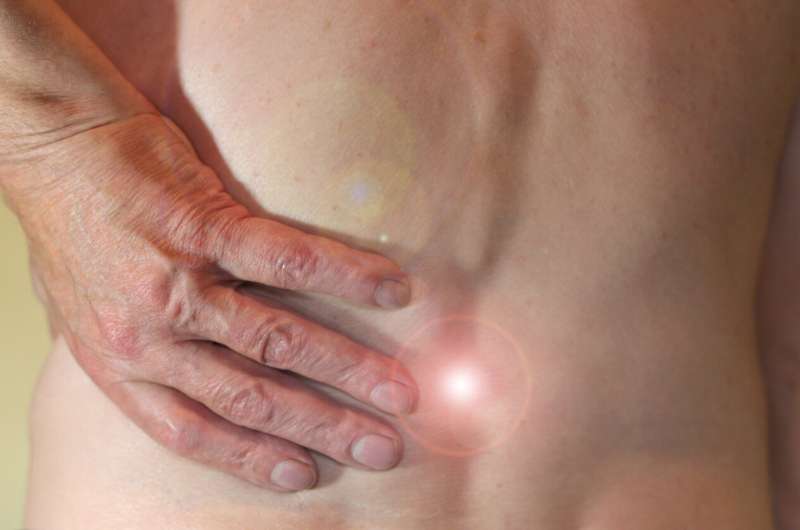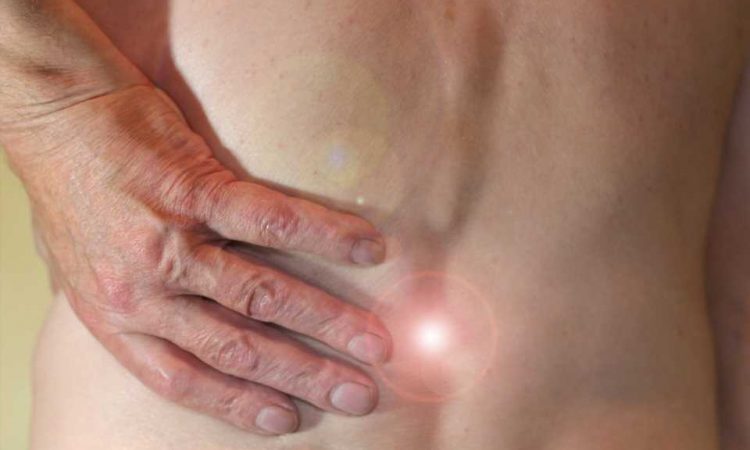
Researchers at the University of Warwick and The James Cook University Hospital, Middlesborough have led a clinical trial on a new treatment which can help people stop needing to use opioid painkillers to manage chronic pain. The study has been published in JAMA.
There are over 1 million people in the UK on prescription opioids, over 50,000 of whom have been taking these for six months or more, at an estimated cost of £500 million to the NHS annually.
Recent NHS initiatives have managed to reduce opioid prescribing by 8%, saving an estimated 350 lives.
New research has found evidence that could help many more people stop their opioid painkiller use.
Despite the evidence that taking opioids long term is harmful there are currently no alternative treatments available to safely help people who are coming off opioids and still dealing with chronic, non-cancer pain.
A team of researchers and clinicians have developed and successfully trialed an intervention program designed to guide people in coming off prescription painkillers, taper their opioid intake and learn how to manage their pain using alternative techniques with a course which combines one-to-one and group support.
One in five people came off opioids within one year
The study, titled I-WOTCH (Improving the Wellbeing of people with Opioid Treated Chronic Pain), found that the intervention program helped one in five people come off their opioids within one year, without substituting medication and without making their pain worse.
Over 600 people took part in the randomized controlled study between 2017 and 2020 who at the beginning of the trial had been regularly taking strong opioids for at least three months. The participants were recruited from GP practices from the North East of England and the Midlands.
The study compared two treatments, dividing participants randomly into two groups. One group had access to their existing GP care, plus a self-help booklet and relaxation CD; the second group had the same and also took part in an intervention program specially developed by the study team.
The intervention program included sessions on coping techniques, stress management, goal setting, mindfulness, posture and movement advice, how to manage any withdrawal symptoms and pain control after opioids.
Participants completed questionnaires about their everyday functioning and painkiller intake at intervals throughout the trial.
After one year, 29 percent of people who took part in the intervention program, were able to fully come off their opioids completely, compared to just 7 percent who were treated with existing GP care, the self-help booklet and CD.
There was no difference between the two groups in terms of their pain, or how pain interfered with their lives.
Combined group and one-to-one support key to reduce opioid need
Harbinder Kaur Sandhu, Professor of Health Psychology at the University of Warwick, who led the clinical trial said, “Structured, group-based, psycho-educational self-management interventions help people to better manage their daily lives with a long-term condition, including persistent pain, but few of these have specifically targeted patients considering opioid withdrawal.”
“The findings from the trial are extremely promising. Many people who have been taking prescription painkillers over a long period time suffer with harmful side effects but can feel reluctant to come off them because they think it could make their pain worse, or they do not know how to approach this with their clinician.”
“Our trial has found a treatment that could help people to come off opioids, in a way that is safe, supportive and gradual. It’s a supported decision between the patient and the clinician, and not forced tapering. The program helps people to learn alternative ways to manage their pain and help overcome challenges of withdrawal and has the potential to give people an overall better quality of life.”
Opioids have little long-term impact on chronic pain
Professor Sam Eldabe, clinical trial co-lead and consultant in pain medicine at The James Cook University Hospital, said, “Our trial is the culmination of six years of work during which we learned that the harms from long term opioids extend beyond the individual into their social circle. Patients taking opioids lose interest in social interaction with family and friends and gradually withdraw from society into an opioid-induced mental fog.”
“Despite appreciating the social impact of the drugs, most patients utterly dread a worsening of their pain should they attempt to reduce their opioids.”
“Our study shows clearly that opioids can be gradually reduced and stopped within no actual worsening of the pain. This confirms our suspicions that opioids have very little long-term impact on persistent pain.”
The full intervention program consisted of an 8 to 10-week course and included:
- Group support sessions: The group sessions consisted of three full day sessions per week. The group sessions included education about opioids and pain, case studies of people who have successfully tapered, learning self-management skills for pain and challenging beliefs. There was also the opportunity to practice techniques such as mindfulness and distraction. The group sessions were facilitated by a trained I-WOTCH nurse and a trained I-WOTCH lay person (someone who had personal experience of pain and opioid tapering).
- Tailored one-to-one support and opioid tapering: In addition to the group sessions, people in the study were also given one-to-one sessions with the nurse to offer support and most importantly tailored advice for the opioid tapering which was delivered face-to-face and through telephone calls. A tapering app designed for the study was used to calculate a reduction on opioid intake based on current guidance at that time and actioned by the participants’ GPs.
More information:
Reducing Opioid Use for Chronic Pain With a Group-Based Intervention: A Randomized Clinical Trial, JAMA (2023). DOI: 10.1001/jama.2023.6454
Journal information:
Journal of the American Medical Association
Source: Read Full Article
